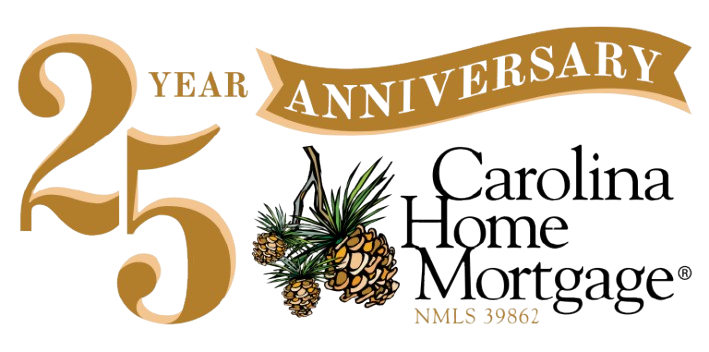Closing Costs
The last step to your mortgage loan is called closing the loan, or loan closing. You will visit an attorney to sign paperwork and pay fees. The fees you pay are called closing costs. Following is what you can expect in general and not on every loan.
While there is no zero-cost mortgage, please note we are a small, mortgage loan company and can refer you to local businesses that may save you money. It never hurts to ask what you’ll pay. You will want to know the costs for each of these before deciding who to work with on your home loan. Your mortgage loan officer will review the costs to close your loan with you.
Closing costs are broken into three sections
- Lender Fees
- Third-Party Fees
- Prepaid Items
Lender-Paid Closing
Zero to 2 percent of the loan amount goes to the lender for preparing the loan. Loan origination, points, commitment, and application fees may or may not be charged by a lender. Here are typical fees,
- $85 is a tax service fee.
- $18 is for flood certification.
- $60 to over $200 for credit reports depending on whether your credit is excellent or needs work.
It is important to look at section A on page 2 of the loan estimate to determine how much you are paying in these fees for the interest rate offered.
A 3.375% rate with these fees may not be as good a deal as a 3.5% rate with none.
This is called a lender-paid closing and, if you work with us, your loan officer is paid by the lender.
Borrower-Paid Closing
Another option is a borrower-paid closing. The borrower can cover all of the fees and may get a lower rate for doing so.
Third-Party Fees for Closing Your Loan
A third party is anyone besides you and the lender. Some of these fees may be added to the amount you are borrowing. Third-party fees include:
- $950 and up for an attorney depending on the attorney you choose.
- Around $2.50 per $1,000 of the purchase price of the loan will cover title insurance.
- If your home is $250,000, then title insurance will cost about $625. Your attorney will do a title search to make sure there are no legal issues with the title or ownership of your home and also no tax liens or judgments against the sale of the home. The attorney will obtain title insurance that usually protects you and the lender from any title risks.
- $100 to the county government to record the legal documents.
- You do not need a home inspection to get a mortgage, but most buyers pay about $500 to a professional who will inspect the condition of the home and give you a home inspection report. This report is used to review any needed repairs with the seller.
- An appraiser must determine the fair market value of the house. Depending on the loan type and location of the home, the appraisal will cost about $550 to $800.
- $20 or less for a tax transcript.
Prepaid Items
At closing you prepay some items including
- Interim Interest. Interim interest covers the mortgage interest on the home loan from the day you sign for the loan until the end of the month.
- Escrow Account. Escrow is a legal term. It means your lender is holding your money in order to pay another party. Generally, your annual homeowner’s insurance and property tax bills are paid from your escrow account. Part of your monthly house payment will go into your escrow account, and the lender withdraws money from that account to pay your annual property tax and homeowner’s insurance bill. You receive an annual statement to show your balance. When you sell your house, any money left in this account is returned to you.
- Homeowner’s Insurance. You choose your insurance agent and homeowner’s insurance policy and pay the first year’s premium at closing. The lender also takes about two months of premium payments to go into your escrow account as savings toward the next year’s premium. When the premium is due the lender can pay the full amount out of the escrow account (see above).
- Other Costs to Close. There are other costs that you may have to assume depending on your particular financial situation and personal choices (see below).
Discount Points
Some borrowers pay points to discount the rate. Points lower your interest rate by paying more money up front. One point equals one percent of the loan amount. So, if the loan is $200,000 one point would cost you $2,000 at closing. Usually, one point at closing lowers your interest rate a quarter percent for the life of the loan.
Generally, points are a good deal if you plan to stay in the house for a long time and have the money. Points are a tax-deductible expense. Ask your mortgage loan officer if discount points are a good idea for you.
Mortgage Insurance
Conventional Loans
Mortgage insurance protects the lender in case you do not make your payment; it does not protect you if you cannot make your mortgage payment. If you are getting a conventional home loan and putting down less than 20 percent, you have to get mortgage insurance. If you only put 5 percent down, your monthly mortgage insurance will be higher than if you can put down 10 percent or 15 percent. Try our Monthly Payment Calculator to see the difference based on the down payment amount.
FHA Loans
First-time home buyers, borrowers with lower credit scores, and borrowers who want to make a low 3.5% down payment usually get an FHA home loan. About 10 percent of home loans are FHA mortgages. FHA guarantees the loan for the lender by issuing mortgage insurance. The monthly premium is added to the monthly mortgage payment. Typically, you have to refinance a conventional loan to stop paying mortgage insurance.
VA and USDA Loans
In place of mortgage insurance, a VA loan has a one-time funding fee which is just added to the loan amount. If a veteran has any VA disability there is no funding fee. A USDA loan has an annual funding fee (this is what USDA calls their mortgage insurance) for the life of the loan. However, it is based on the principal so each year it gets lower and lower. By year 29 of the USDA mortgage the funding fee is nearly nonexistent.
Closing Costs Others May Cover
In most cases, you can use a gift from a friend or relative for the down payment. Please contact a mortgage loan officer to discuss this option if you are considering a gift to pay your closing costs.
Some buyers do not have enough cash on hand to cover the down payment or the cost of closing the loan. The seller may pay a portion of your closing costs but cannot pay any of your down payment.
Where Do I Find the Costs to Close?
- Try to get at least two quotes from mortgage lenders so you can compare their closing costs – as well as their interest rates.
- Review your Loan Estimate line by line as early as possible.
- The document that shows your actual costs to close is called a Closing Disclosure.
Loan Estimate
Read your Loan Estimate (LE). This form documents all of your closing costs, but it’s not the final word. Federal law requires mortgage lenders to provide borrowers with an LE of the closing costs within three days of submitting a loan application. The LE is your lender’s estimate of the final fees they’ll charge for originating your loan and shows if your interest rate is locked. These amounts will not change. The property taxes and homeowner’s insurance premium are estimates and may change.

Closing Disclosure
Read your Closing Disclosure (CD). This form documents all of your closing costs and is final. Federal law requires mortgage lenders to provide loan applicants with an initial Closing Disclosure of the closing costs at least three days, excluding Sundays and national holidays, before closing. The initial CD must be signed by the borrower at least three days prior to closing. Changes can be made to the initial CD up until closing.
Page three of the CD compares the loan estimate with the actual fees.
Closing Cost Comparison
Ask questions about what you are being charged. We can look at your loan estimate from any other lender and point out all costs to you. Brokers like Carolina Home Mortgage have different rules than banks. We will tell you how much we are paid and how much credit we can get for you. Banks are not required to share this information.
Can I Get a No Cost Mortgage?
Zero-cost mortgages are not possible. You either pay the costs to close when you sign for your home loan or pay a higher rate and pay the costs to close over time.
We only recommend this option if you need a short-term loan. That’s because a higher rate, even a slightly higher rate, can add up over the life of a home loan. Make sure when you compare interest rates that you are also comparing the costs to close.

